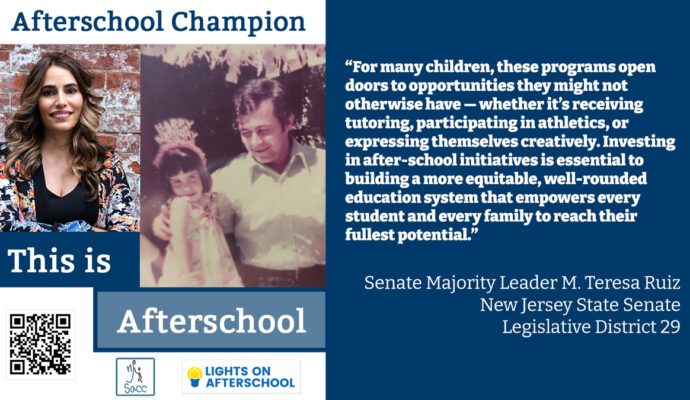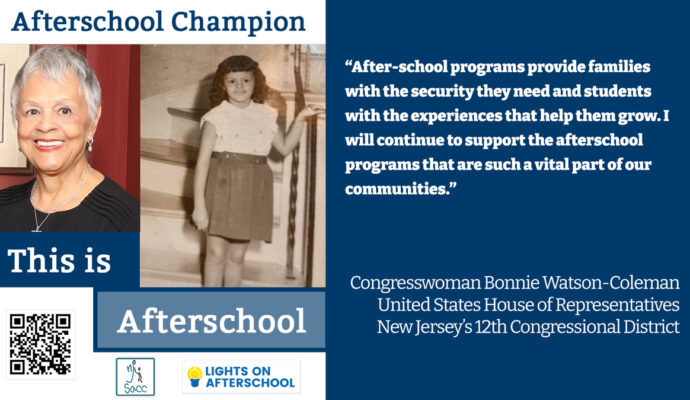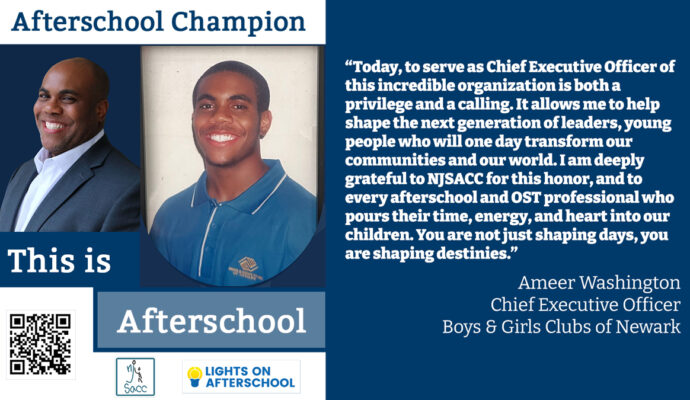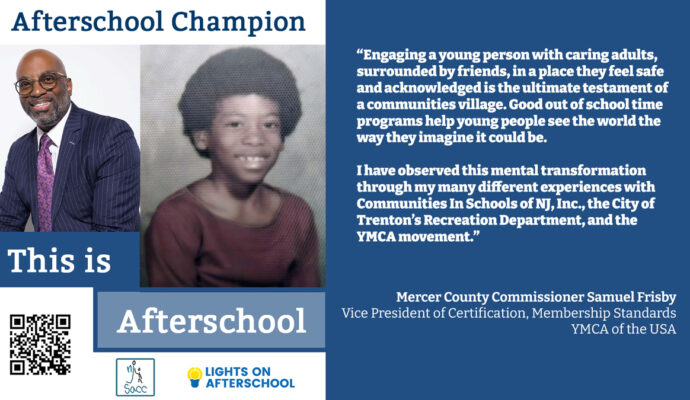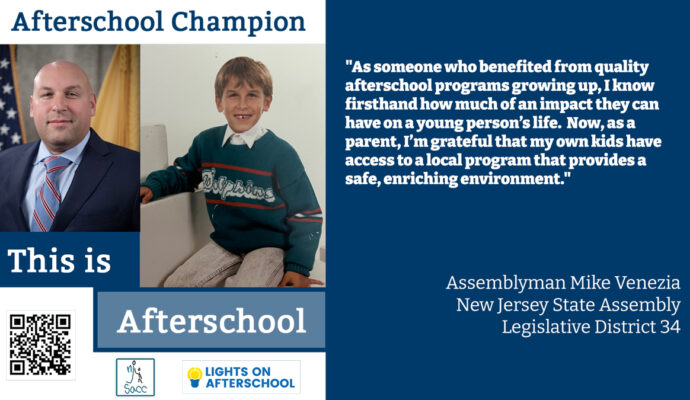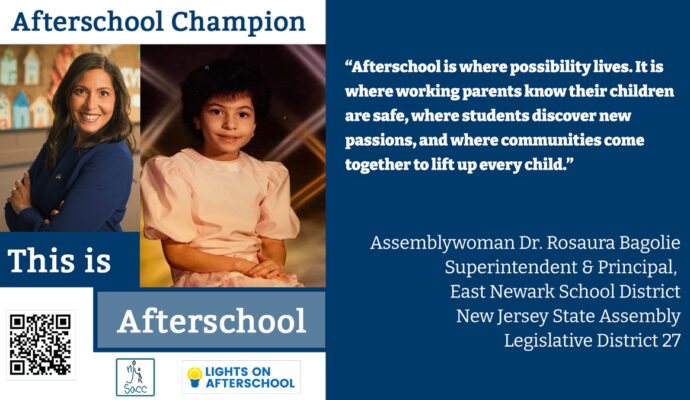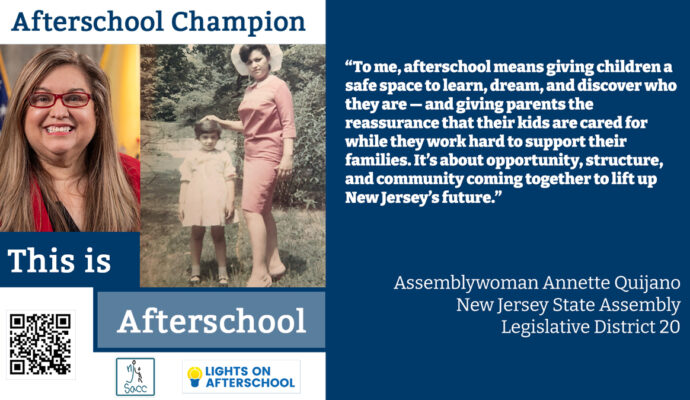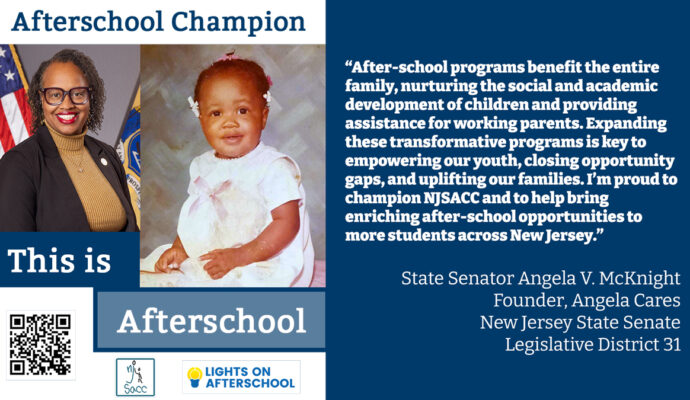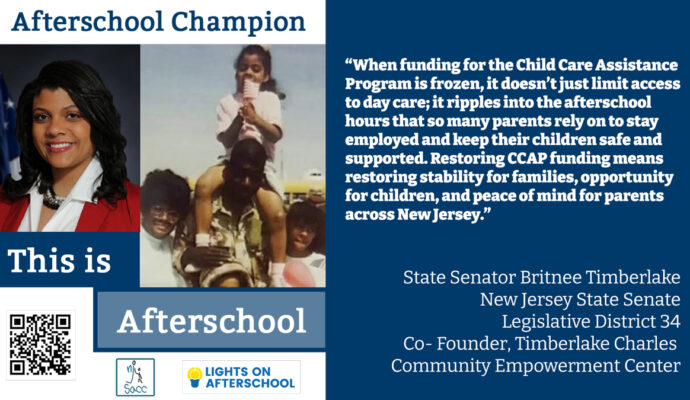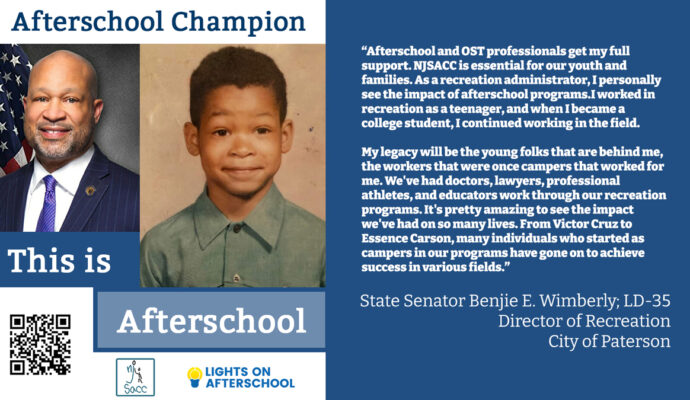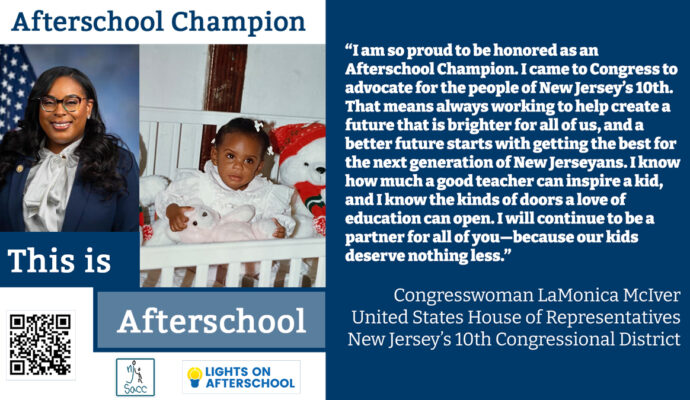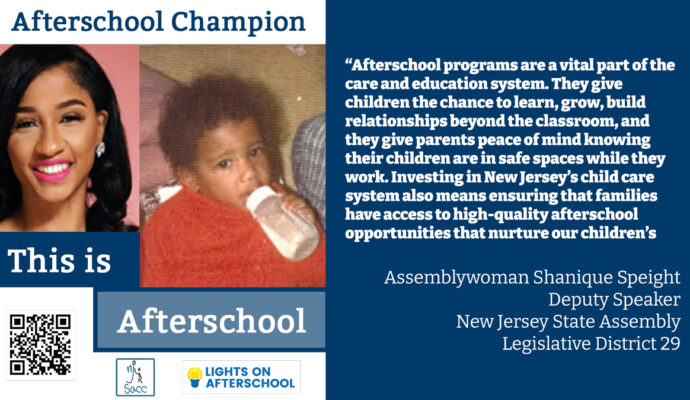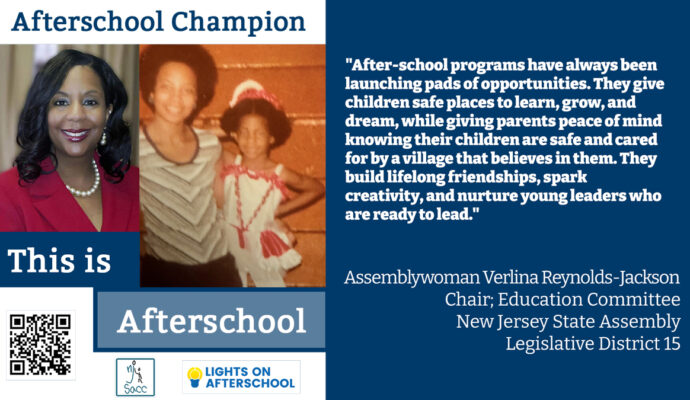
NJSACC Advocacy Priorities: Expanding Afterschool and Out-of-School Time (OST) Opportunities in New Jersey
NJSACC envisions a New Jersey where every child has access to high-quality afterschool and OST programs that support learning, personal growth, and career readiness. These programs are essential for working families, academic success, and youth well-being. To achieve this vision, we advocate for policies that ensure equitable access, workforce development, and sustained investment in OST programs.
NJSACC is:
NJSACC ADVOCATES FOR YOU!
Our Director of Policy & Youth Advocacy, Tyneisha K. Gibbs, brings over 15 years of hands-on experience in the Out-of-School Time (OST) field, driven by a deep passion for education reform, social justice, and policy. In 2019, she was nationally recognized as a White Riley Peterson Policy Fellow, a prestigious fellowship named after former U.S. Secretary of Education Dick Riley that prepares leaders to advance afterschool and expanded learning policy. Tyneisha blends program expertise with strategic advocacy to strengthen New Jersey’s OST ecosystem. Contact her for technical assistance—from everyday advocacy to navigating larger policy and systems issues. our team is here for yours! tgibbs@njsacc.org
- Advocate for dedicated funding streams to expand OST program availability statewide.
- Raise awareness among policymakers and stakeholders about the impact of afterschool and summer programs on academic performance, youth development, and workforce readiness.
- Center youth and family voices in policy discussions to ensure OST programs meet community needs.
- Strengthen regional advocacy efforts to support local OST initiatives.
- Leverage federal and state funding sources, including the Child Care Development Block Grant (CCDBG) and 21st Century Community Learning Centers (21st CCLC), to enhance program reach and sustainability.
- Align per-student funding rates with the true cost of program operations to ensure sustainability.
- Foster collaboration between schools and OST providers to support seamless learning experiences.
- Promote NJSACC as a leader in expanded learning, technical assistance, and quality improvement for OST programs statewide.
- Encourage widespread adoption of New Jersey’s Quality Standards for Afterschool and OST programs.
- Advocate for competitive wages, benefits, and career pathways to sustain a skilled OST workforce.
- Expand professional development and credentialing opportunities for OST staff, including scholarships and incentives for training.
- Support workforce equity initiatives to address disparities and improve retention of OST professionals.
- Expand access to technical assistance and support services for OST providers.
- Address administrative barriers that hinder OST program funding and compliance.
- Streamline funding application and contracting processes to reduce bureaucratic burdens on providers.
- Promote accountability and continuous quality improvement in afterschool and OST programs.
- Evaluate the impact of OST programs in New Jersey to inform future investments and policy decisions.
- Make recommendations related to state funding for OST programs, provide testimony in support of those recommendations, track the history of public funding, and advocate for equitable policies to be enacted like the OST Commission bill.
- Secure increased federal funding for 21st CCLC programs to meet the growing demand for afterschool and summer learning opportunities.
- Highlight the success of federal relief investments, such as the American Rescue Plan, in expanding OST programs for high-need communities.
- Advocate for sustained federal support to prevent program closures and ensure long-term stability.
NJSACC Advocacy In Action: Newsletter (October 2025)
NJSACC’s Advocacy In Action Newsletter highlights critical news, updates, and resources impacting afterschool and out-of-school time (OST) professionals and supporters across New Jersey and around the country. Click on each accordion below to read each article.
NJSACC Thanks these individuals for advocating for afterschool! Thank you to all of you for being an AFTERSCHOOL CHAMPIONS!
NJSACC Thanks These Champions of Afterschool During the 26th Annual Lights On Afterschool Celebration
